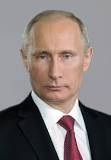Progress Made in Russia-Ukraine Gas Dispute
- Next round of trilateral talks scheduled for May 26
- Russia willing to discuss lower price
Europe's Energy Commissioner said on Monday progress had been made in the gas price dispute between Russia and Ukraine after talks with Russia's energy minister and Gazprom and said a fresh round of negotiations was scheduled for May 26.
Russian President Vladimir Putin has urged EU leaders to do more to help Ukraine through its economic crisis and resolve the standoff over gas. He has threatened to cut exports if Kiev fails to pay in advance for June deliveries.
"We have in the last few days made progress on a number of issues but we still have no agreement," said the EU's Guenther Oettinger, adding further talks between Russia, Ukraine and the EU would take place next Monday, probably in Berlin.
He added that he expected Kiev to use any forthcoming aid packages from the International Monetary Fund (IMF) and European Union to pay for past and future gas deliveries.
"We want to solve the problems before June 1," Oettinger said, adding the EU would do all it could to ensure Ukraine pays its outstanding bills and to safeguard Europe's supplies.
Russia supplies around a third of Europe's gas demand and about half of its gas imports from Russia flow through Ukraine.
Russian Energy Minister Alexander Novak reiterated that Russia was willing to discuss a lower price for Ukraine if there was a "clear rescue package" and Kiev paid off at least the $2.2 billion it owed as of April 1, adding that Kiev's overall gas debt stood by $3.5 billion.
Ukraine is insisting on a price of $268.50 per 1,000 cubic metres of gas while Russia stands by its demand for $485.
"Somewhere in the middle would seem to be a fair result of negotiations," the EU Commissioner told German television earlier. The average gas price paid by European customers to Gazprom lies around $370.
Ukraine wants to change the conditions of a 2009 contract that locked Kiev into buying a set volume of gas, whether it needs it or not, at $485 per 1,000 cubic metres - the highest price paid by any client in Europe.
Moscow dropped the price to $268.50 after then-President Viktor Yanukovich turned his back on a trade and association agreement with the European Union last year, but reinstated the original price after he was ousted in February.
Gas as "Political Weapon"
Ukraine, dependent on Russia for more than half of its gas needs, has refused to pay the price Russia is asking, accusing Moscow of using energy supplies to punish the country for trying to break free from its influence.
Oettinger said that some agreement had been reached on the delivered volumes and prices for the period from November to March but that the parties were still working on prices for April, May and beyond.
Moscow has twice before reduced gas supplies over price disputes, disrupting gas deliveries to Europe.
In a further sign of easing tensions in the gas dispute, Russian Foreign Minister Sergei Lavrov said in Moscow that Slovakia's agreement to allow reverse flows of gas to Ukraine from Europe did not violate agreements with Russia.
"We have no complaints over that," Lavrov told a news conference with his Slovak counterpart when asked about Slovakia's efforts to send gas to Ukraine.
The EU and its member states have made efforts to improve the region's gas infrastructure to allow greater gas flows from within the EU towards Ukraine, should Russia cut supplies.
Sending gas to Ukraine from the EU is a powerful weapon. The Russian state gas export monopoly Gazprom has long protested against the scheme, saying it feared its gas destined for Germany would be re-exported to Ukraine in breach of contracts.
After meeting Oettinger in Berlin, Gazprom's deputy chief executive Alexander Medvedev brushed off the allegation that Russia was using its vast gas reserves as a political weapon.
While shareholders were urging the management to act in accordance with existing contracts, Gazprom has offered its "Ukrainian friends" an opportunity to find a solution, he said.
"But we haven't had any money for two months. So who is using gas as a political weapon? It's the Ukrainians, not the Russians," Medvedev said.
(By Michael Nienaber, Additional reporting by Madeline Chambers and Markus Wacket and Alissa de Carbonnel in Moscow; editing by Keiron Henderson)



